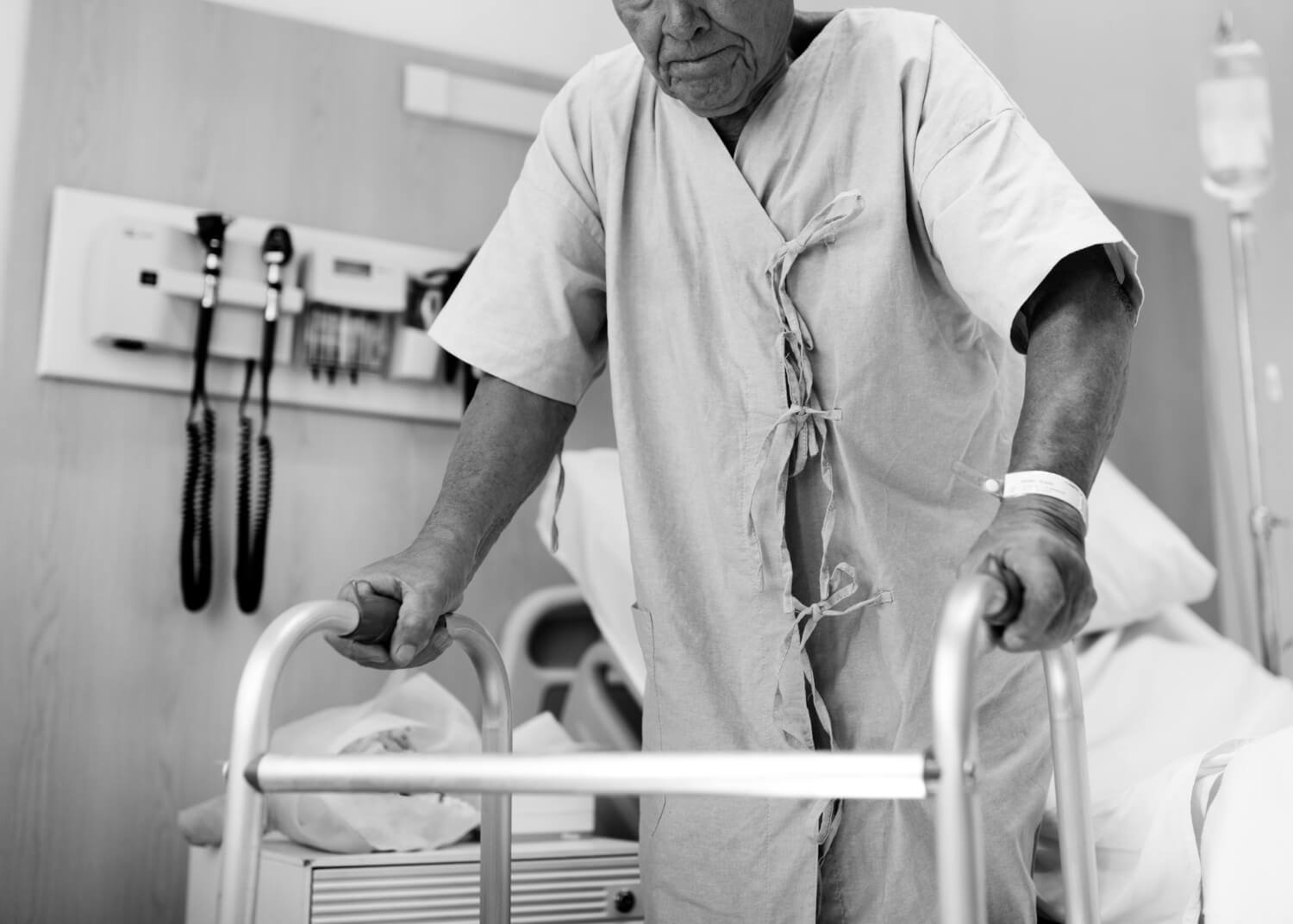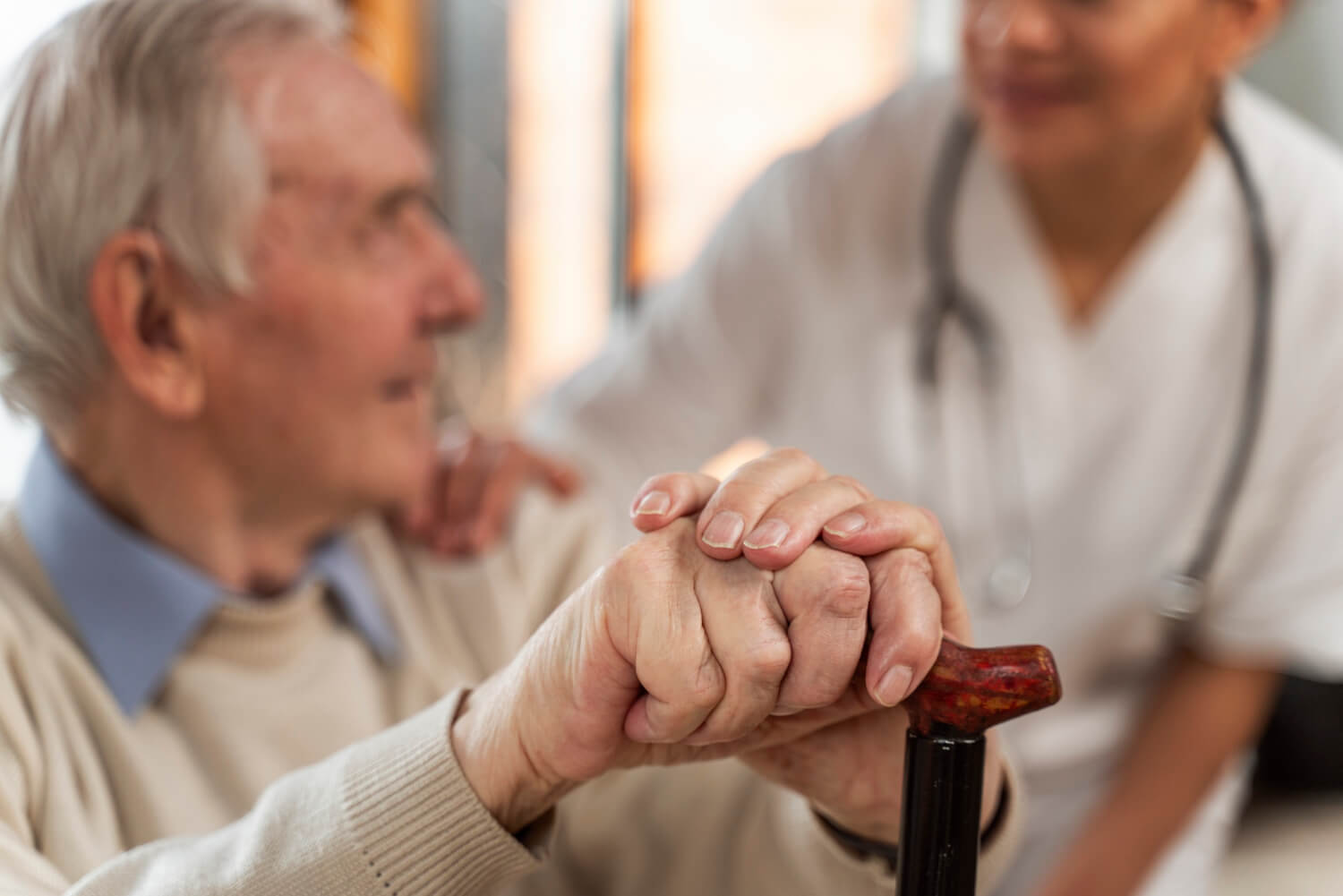Aging and Personal Injury: How Age can Affect Recovery
Whether you've been injured in an accident, are dealing with a personal injury claim, or facing another legal issue, Mendez & Sanchez APC is here to fight for you. Contact us today for a free, no-obligation consultation.
Call Us Now.jpg&w=3840&q=75)
As we get older, our bodies become more fragile and susceptible to injury. Recovering from an injury is never easy, but it can be even more difficult for older individuals. The recovery process is not only more expensive, but also more delicate for them.

Ways that Age can Affect Recovery
1. Longer Recovery Times: As we age, our bodies take longer to heal. This means that recovery from a personal injury may take longer for an older individual than a younger one. The extended recovery time can lead to additional medical expenses and time away from work, which can put a significant financial strain on the individual.
2. Pre-existing Conditions: Older individuals may have pre-existing medical conditions that can complicate the recovery process. These conditions can make it more difficult for the individual to heal from their injury and may require additional medical treatment.
3. Reduced Mobility: As we age, our mobility can decrease, making it more difficult to move around and perform daily activities. This can make the recovery process more challenging, as the individual may not be able to perform the exercises or physical therapy needed to recover fully.
4. Decreased Bone Density: As we age, our bones become less dense, making them more susceptible to fractures and breaks. This can make the recovery process more difficult, as it may require additional time and medical treatment.
5. Weakened Immune System: As we age, our immune system can weaken, making it more difficult for our bodies to fight off infections and heal from injuries. This can lead to longer recovery times and a higher risk of complications.
6. Increased Risk of Falls: Older individuals are at a higher risk of falls, which can result in serious injuries such as broken bones or head trauma. This can make the recovery process more challenging, as it may require additional medical treatment and rehabilitation.
7. Emotional Impact: Recovering from a personal injury can be emotionally challenging for anyone, but it can be particularly difficult for older individuals who may already be dealing with age-related changes and losses. This emotional impact can make the recovery process more challenging and may require additional support.

Common Injuries in an Accident and Recovery Times for the Elderly
Personal injuries can vary in severity and recovery time, depending on the type and extent of the injury. Here are some common personal injuries and their estimated recovery times for older individuals:
1. Fractures and Broken Bones: Fractures and broken bones are common injuries among older individuals, especially in the hips, wrists, and ankles. Recovery times for fractures and broken bones can range from six weeks to several months, depending on the severity of the injury and the individual's age. Older individuals may require additional medical treatment, such as surgery or physical therapy, to aid in the healing process.
2. Soft Tissue Injuries: Soft tissue injuries, such as sprains and strains, are common among people of all ages. However, older individuals may take longer to recover from these injuries due to reduced mobility and weaker muscles. Recovery times for soft tissue injuries can range from a few weeks to several months, depending on the severity of the injury and the individual's age.
3. Head Injuries: Head injuries, such as concussions, can be serious and require prompt medical attention. Recovery times for head injuries can vary depending on the severity of the injury, but older individuals may take longer to recover due to reduced cognitive function and increased risk of complications. Recovery times can range from a few weeks to several months, and in severe cases, may require long-term medical treatment and rehabilitation.
4. Spinal Injuries: Spinal injuries can be serious and require immediate medical attention. Recovery times for spinal injuries can vary depending on the severity of the injury, but older individuals may take longer to recover due to reduced mobility and increased risk of complications. Recovery times can range from a few weeks to several months, and in severe cases, may require long-term medical treatment and rehabilitation.
5. Burn Injuries: Burn injuries can be severe and require specialized medical attention. Recovery times for burn injuries can vary depending on the severity of the burn and the age of the individual. For older individuals, recovery times may be longer due to reduced skin elasticity and slower healing. Recovery times can range from several weeks to several months and may require long-term medical treatment and rehabilitation.
6. Joint Injuries: Joint injuries, such as dislocated joints or torn ligaments, can be particularly challenging for older individuals. Recovery times for joint injuries can range from a few weeks to several months and may require additional medical treatment such as physical therapy or surgery.
7. Eye Injuries: Eye injuries, such as damage to the cornea or retina, can be particularly severe and may require immediate medical attention. Recovery times for eye injuries can vary depending on the severity of the injury and the age of the individual. For older individuals, recovery times may be longer due to reduced visual function and slower healing. Recovery times can range from several weeks to several months and may require long-term medical treatment and rehabilitation.
8. Traumatic Brain Injuries: Traumatic brain injuries can be particularly severe and may require specialized medical attention. Recovery times for traumatic brain injuries can vary greatly depending on the severity of the injury and the age of the individual. For older individuals, recovery times may be longer due to reduced cognitive function and increased risk of complications. Recovery times can range from several weeks to several months and may require long-term medical treatment and rehabilitation.
What Should You Do
1. Seek Medical Attention: If you've been injured, seek medical attention immediately. Even if you don't feel like you've been seriously hurt, it's essential to get checked out by a medical professional. They can evaluate your injuries and provide you with a treatment plan.
2. Talk to a Personal Injury Lawyer: If you've been injured in an accident that was caused by someone else's negligence, you may be entitled to compensation. A personal injury lawyer can help you navigate the legal process and ensure that you receive the compensation you deserve. They can also help you understand how contingency fees work, so you don't have to worry about upfront costs.
3. Be Patient: Recovery takes time, and it's essential to be patient with yourself during the process. Don't rush your recovery, as this can lead to further injury or setbacks. Follow your doctor's orders and stick to your treatment plan, and you'll be on your way to a full recovery.
Tips for Family Members and/or Caregivers
1. Understand the Injury: The first step in taking care of an elderly relative who has suffered a personal injury is to understand the nature and severity of the injury. Speak with medical professionals and ask questions to ensure that you understand what the injury is, how it will impact your relative, and what steps need to be taken for a full recovery.
2. Prepare the Home: If your elderly relative will be returning home from the hospital, it's important to make the necessary adjustments to ensure that their living environment is safe and comfortable. This may include installing handrails, removing tripping hazards, and arranging furniture to make it easier for them to move around.
3. Get Help: Depending on the severity of the injury, your elderly relative may require additional help and support. This could include assistance with daily tasks such as bathing, dressing, and cooking, or it could involve professional medical care. Consider hiring a home health aide or enlisting the help of family members to ensure that your relative has the care and support they need.
4. Communicate: It's important to communicate with your elderly relative throughout the recovery process to ensure that they feel supported and informed. Keep them up to date on their medical treatment, involve them in decisions regarding their care, and encourage them to share their thoughts and feelings about their recovery.
5. Take Care of Yourself: Taking care of an elderly relative who has suffered a personal injury can be physically and emotionally demanding. It's important to take care of yourself by getting enough sleep, eating a healthy diet, and seeking support from family and friends.
By following these tips, you can help ensure that your elderly relative receives the best possible care and support during their recovery from a personal injury. If you have any legal questions or concerns, don't hesitate to reach out to a personal injury lawyer for guidance and support.

Conclusion
At our law firm, we understand the challenges that older individuals face when recovering from a personal injury. We've helped countless clients, both young and old, navigate the legal process and receive the compensation they deserve. If you've been injured in an accident, contact us today to schedule a consultation. We'll fight for your rights and ensure that you receive the compensation you deserve.
Credits: Main Image by Freepik


